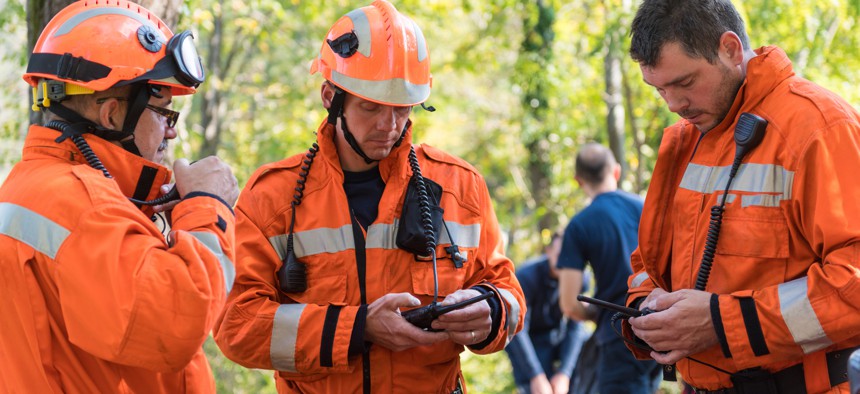FirstNet should be reauthorized before it sunsets, GAO says

GettyImages/AlenaPaulus
Any significant changes to the public safety broadband network would be complex, expensive and may disrupt services delivery if the contract with AT&T is interrupted or changed before 2042, GAO warned.
Ten years after FirstNet was established, the nationwide public safety wireless broadband network is nearly fully built out, and the Government Accountability Office is calling on Congress to reauthorize the program before it sunsets in 2027.
When FirstNet was authorized in 2012, it was charged with holding the single Band-14 spectrum license for the network and administering the 25-year network contract, which was awarded to AT&T in 2017. FirstNet was also made responsible for managing network updates and fee revenue reinvestment as well as conducting public safety outreach and consultation.
In a Feb. 22 report, GAO laid out three options for Congress. FirstNet could be reauthorized as is, it could be moved out of the Commerce Department's National Telecommunications and Information Administration and into another agency or it could be reauthorized as a separate entity, independent of any executive branch agency. Any significant changes, however, would be complex, expensive and may disrupt services delivery if the contract with AT&T is interrupted or changed before 2042, GAO warned.
"Given the interconnectedness of FirstNet’s ongoing key statutory responsibilities, dispersing these responsibilities among multiple federal agencies might complicate oversight, add complexity to continuing network operations, and lead to inefficiencies," GAO said.
Additionally, because the initial authorization requires that the money AT&T collects from fees on commercial use of the excess spectrum capacity be reinvested in the network -- for construction, maintenance, operation or improvement – any change to the contract could derail FirstNet improvements.
"FirstNet officials and investment documents note that completing the required technology upgrades (i.e., 5G and future generations of mobile wireless technologies) might require the majority of the $18 billion in fees expected over the life of the contract and careful planning around the availability of sufficient funds for each stage of the upgrade," the report said.
"As Congress considers the various options for managing the network, and their inherent advantages and disadvantages, it will be important to take some legislative actions, at the minimum, to ensure network continuity," the GAO report stated. "Without any legislative action, the continued operation of the network would be jeopardized and could result in significant disruption for first responders who rely on the network for emergency response."
FirstNet has surpassed 95% nationwide coverage in just four years and added approximately 100,000 square miles to the network’s footprint in 2020 alone, FirstNet CEO Edward Parkinson said in a Feb. 22 blog post. The FirstNet Authority is working with public safety officials to map out the expansion of FirstNet’s coverage where they said they needed it most, including in traditionally underserved and rural areas, he said.






